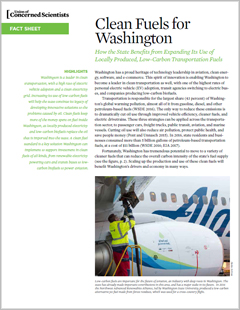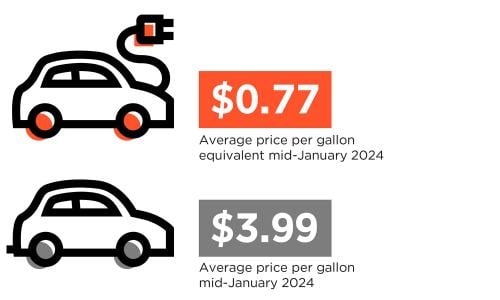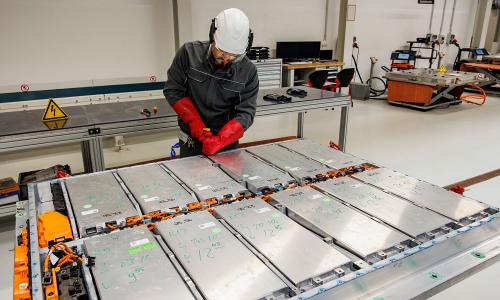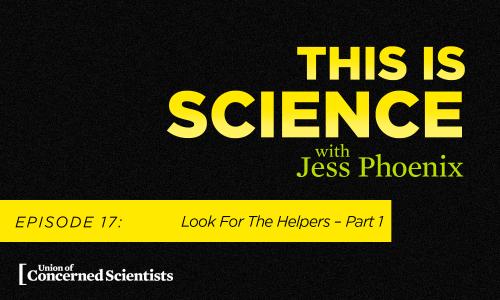Washington has a proud history of entrepreneurship and technological innovation. In the transportation sector, the state enjoys one of the country’s highest rates of electric vehicle (EV) adoption, transit agencies switching to electric buses, and companies producing low-carbon biofuels.
Despite this progress, transportation is responsible for the largest share of Washington’s global warming pollution. Fortunately, Washington has tremendous potential to move to a variety of cleaner fuels that can reduce the overall carbon intensity of the state’s fuel supply (see figure below).
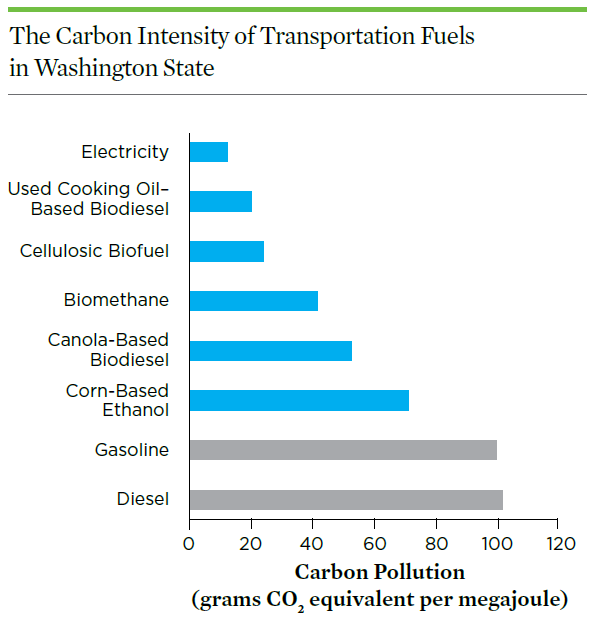
Electric vehicles can help. An average electric car charged in Washington produces the carbon emissions equivalent to a gas-powered car achieving up to 144 miles per gallon (mpg), and as the state increases the use of renewable power these emissions will fall even further. Charging an EV is also much less expensive than buying gasoline. Driving 12,000 miles in 2017 cost $1,365 in Washington in a typical gasoline vehicle (25.6 mpg), compared with $374 to charge an EV at the state average residential electricity rate, for a savings of $990.
Biofuels are another clean fuel opportunity, and an area of existing strength and potential growth. From biodiesel, to biomethane to low carbon alternative jet fuel, Washington has the resources, expertise and markets to do much more than it does today, but steady policy support is needed to realize this potential.
Transitioning from oil to cleaner fuels like electricity and low-carbon biofuels will take time and long-term policy support. A clean fuel standard would encourage all fuel types—including biofuels, electricity, and petroleum-based fuels—to cut emissions and compete based on their cost and carbon benefits. Such a policy would cut Washington’s emissions and cement the state as a clean transportation leader.
